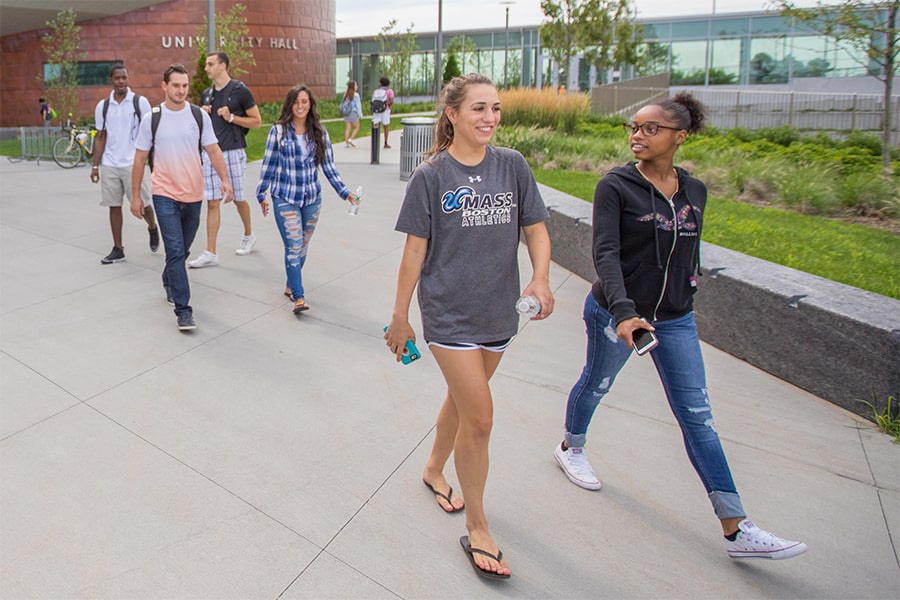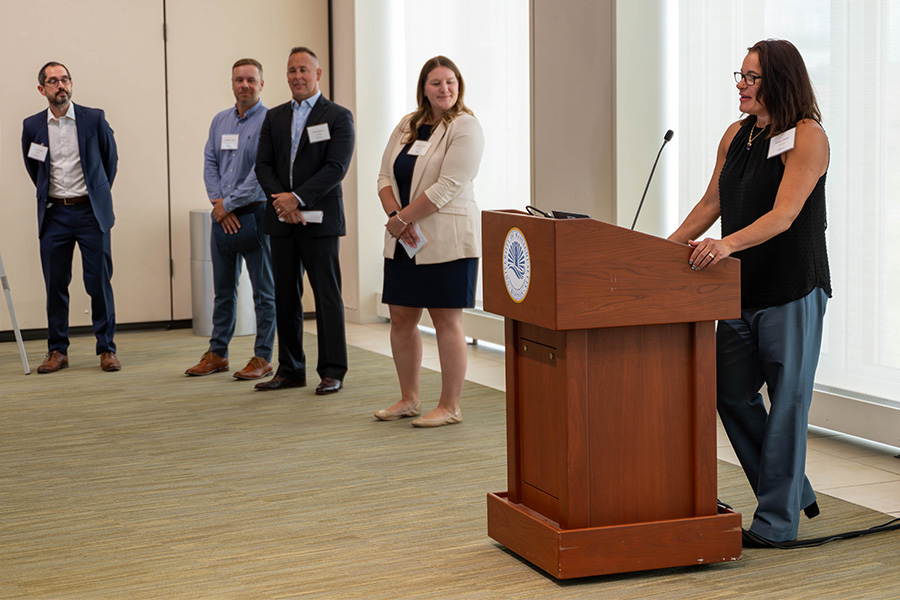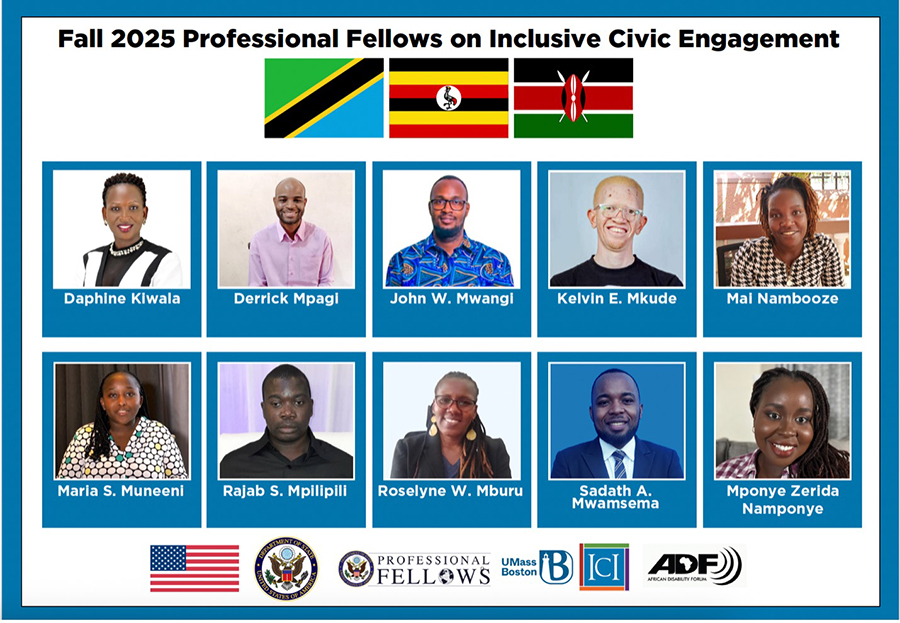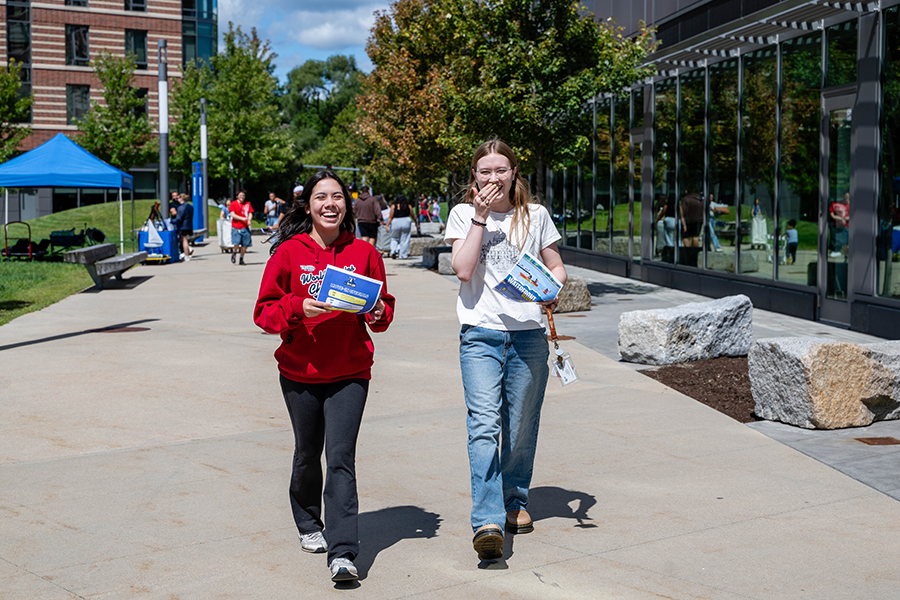New Carnegie Classification Recognizes UMass Boston as a High-Access University
“UMass Boston has long maintained a commitment to research that generates new knowledge that both explores critical areas of inquiry and addresses complex challenges of our times,” said Chancellor Marcelo Suárez-Orozco, noting Carnegie’s classification of the university has an R1 institution earlier this year. “This new high-access designation reaffirms our equally firm commitment to providing the highest student access to an excellent university education.”
According to ACE and Carnegie, the classification updates are intended to reflect the multifaceted nature of higher education in the 21st century and measure the extent to which institutions provide students access and a path to earning competitive wages. The Carnegie Classifications now identify institutions within the Student Access and Earnings Classification that can serve as models for studying how campuses can foster student success.
“The majority of students apply to college with the hope it is a path to opportunity, and the job they’ve dreamt about,” said Timothy F.C. Knowles, president of the Carnegie Foundation, in a press release. “This work is about ensuring that institutions are recognized when they empower students to reach their goals and succeed.”
“Hundreds of institutions nationwide are providing students an excellent opportunity to use higher education as a springboard to a better life,” said Ted Mitchell, president of ACE. “The Student Access and Earnings Classification highlights the depth and breadth of schools where student success is front and center.”
In February, Carnegie raised UMass Boston’s research classification to R1, very high research activity–very high spending and doctorate production. In fiscal year 2024, UMass Boston reported $81.1 million in annual research funding, a growth of 31% over the past four years, and research expenditures grew to $71.34 million, a growth of 33.7% over the past four years. Doctoral degrees conferred have reached record levels over the past four years, to 124 in 2024, nearly double the number a decade ago.
"I am pleased that the Carnegie Foundation once again recognizes excellence at UMass Boston,” said Provost Joseph Berger. “Our high-access mission is a point of pride, and this new classification is further validation of the essential role UMass Boston plays as a leading research institution that promotes inclusive excellence for the communities we serve."
About the 2025 Institutional Classification
Since 1973, the Carnegie Classification has served as the gold standard for organizing the landscape of U.S. higher education. The 2025 Institutional Classification updates the historic approach to grouping similar colleges and universities, now organizing institutions by multiple characteristics, including their size, the types of degrees they award, and the fields of study in which students receive their degrees.
By using multidimensional categories to group institutions, the Institutional Classification better reflects the wide variety of institutional missions and organizational structures that exist today. This update addresses the limitations of the historic Basic Classification, which organized most institutions primarily by academic program concentration or the highest degree awarded and fell short of adequately describing the full scope of activity on campuses across the country.
The multidimensional groupings of the Institutional Classification are designed to make the Carnegie Classifications more relevant and useful for policymakers, funders, researchers, and others who rely on the classification system for a comprehensive view of higher education in the United States.
About the 2025 Student Access and Earnings Classification
The 2025 Student Access and Earnings Classification focuses on student success. The classification measures whether institutions are enrolling and creating opportunities for students in communities the institutions serve and whether students earn competitive wages after they attend.
The Student Access and Earnings Classification recognizes a wide variety of institutions of all sizes, locations, and types as drivers of opportunities for students. 479 schools have been named Opportunity Colleges and Universities, a new designation that identifies institutions within the classification that can serve as a model for studying how campuses can foster student success.
This new classification uses the multidimensional groupings of the 2025 Institutional Classification to evaluate student access and earnings between similar colleges and universities. By evaluating student access and earnings among peer campuses, the Classifications aim to foster collaboration and institutional improvement with a focus on how comparable higher education institutions can foster opportunities for student success. The methodology also considers location data for each institution, comparing an institution’s data to the relevant geographical context.
Latest University News
- UMass Boston’s Emerging Leaders Program Celebrates Annual ShowcaseThe Emerging Leaders Program (ELP) and members of the UMass Boston community gathered to celebrate the graduation of the 2025 cohort and showcase their innovative solutions to pressing regional challenges.
- UMass Boston’s Institute for Community Inclusion Welcomes Fall 2025 East African Disability Rights Professional FellowsThe Institute for Community Inclusion (ICI) is excited to welcome 10 East African disability rights leaders to Boston on Wednesday, September 10, as part of its Professional Fellows Program (PFP). This year’s cohort includes three Fellows from Kenya, three Fellows from Tanzania, and four Fellows from Uganda.
- With Harp and Piano, Chaerin Kim Sets New RecordsOn May 18, on a stage in Venezuela, Chaerin Kim stepped out to perform her eighth curtain call of the evening, as the audience gave a standing ovation. A multi-instrumentalist, composer, and conductor, she had just set a new world record by being the first soloist to play concertos on both harp and piano, accompanied by an orchestra, premiering her own composition in the same concert.
- Record Number of In-State First-Year Students Welcomed at UMass Boston Following Historic Beacon Pledge CommitmentOver 1,900 New Enrollees Build on Recent Growth of Boston’s Public Research University
- Theatre Arts Mashes Tolstoi and Electro-Pop with The Great CometThe University Hall Theatre will once again be filled with music, with an electro-pop operatic romp ripped from a scandalous slice of Tolstoi’s War and Peace. Natasha, Pierre and The Great Comet of 1812 will launch on November 13, with auditions – open to students of all majors – on September 9 and 10. The theatre space will once again transform with an immersive seating plan, putting the audience in the middle of the action of a Russian socialite ball.
- Impact is InevitableQuantum mechanics challenges what we think we know about how the world works— and shows physicists and engineers a doorway to astonishing technological possibilities. UMass Boston is exploring how public research, interdisciplinary education, and industry collaboration might unlock the power of the quantum world.













